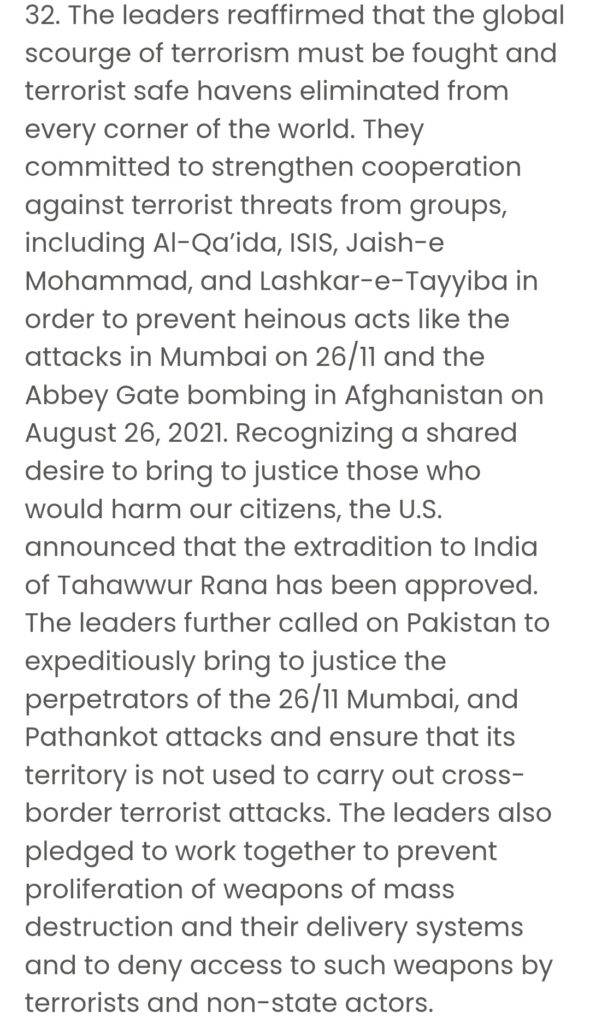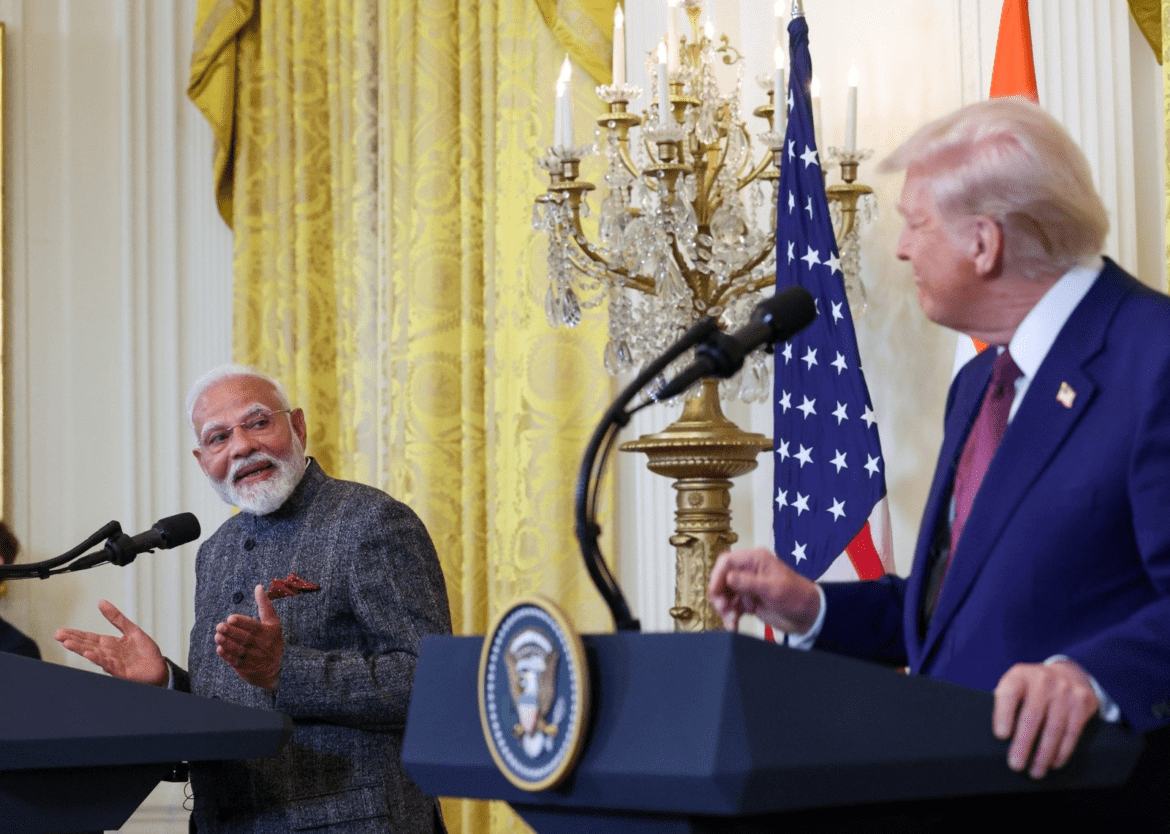AI Generated Summary
- In a significant and pointed diplomatic move, the United States and India have jointly reaffirmed their commitment to eliminating terrorism in all its forms, with a sharp focus on Pakistan’s role in fostering cross-border attacks.
- The leaders’ call for Pakistan to “expeditiously bring to justice the perpetrators” of the Mumbai and Pathankot attacks places a direct responsibility on Islamabad to take concrete action against these terror outfits.
- Rana, an accused facilitator of the 26/11 attacks, represents a crucial link in the chain of global terrorism, and his extradition underscores a broader agenda of accountability.
In a significant and pointed diplomatic move, the United States and India have jointly reaffirmed their commitment to eliminating terrorism in all its forms, with a sharp focus on Pakistan’s role in fostering cross-border attacks. Their latest joint statement explicitly calls on Pakistan to ensure that its territory is not used as a launchpad for terrorist activities—a direct indictment of Islamabad’s historical failure to crack down on extremist groups operating within its borders.
The statement, released following high-level discussions between the two nations, underscores a renewed push for global cooperation against terrorist threats from notorious organizations like Al-Qaeda, ISIS, Jaish-e-Mohammad, and Lashkar-e-Tayyiba. The timing and the intensity of this diplomatic censure are crucial, as they coincide with ongoing global efforts to dismantle networks that have perpetrated heinous acts, including the 26/11 Mumbai attacks and the Pathankot assault.

This declaration from Washington and New Delhi is not mere rhetoric—it is a stark warning to Pakistan. The message is clear: the world will no longer tolerate state-sponsored terrorism or the provision of safe havens for groups that continue to endanger global security. The leaders’ call for Pakistan to “expeditiously bring to justice the perpetrators” of the Mumbai and Pathankot attacks places a direct responsibility on Islamabad to take concrete action against these terror outfits. If Pakistan continues its long-standing policy of denial and deflection, it risks further alienation from the international community.
Moreover, the approval of Tahawwur Rana’s extradition from the U.S. to India signifies a serious commitment to justice for victims of terrorism. Rana, an accused facilitator of the 26/11 attacks, represents a crucial link in the chain of global terrorism, and his extradition underscores a broader agenda of accountability. The U.S. move to hand him over to Indian authorities highlights Washington’s confidence in India’s judicial process and its broader commitment to tackling terrorism alongside its strategic partner.
What makes this joint statement even more impactful is its emphasis on preventing the proliferation of weapons of mass destruction (WMDs) and their delivery systems from falling into the hands of terrorists and non-state actors. This aligns with the broader global counterterrorism strategy that seeks to neutralize threats before they materialize into catastrophic consequences.
Pakistan, which has often dismissed such concerns as politically motivated attacks, now faces increasing diplomatic pressure. It can no longer hide behind vague assurances and half-hearted measures. If Islamabad is sincere about its commitment to counterterrorism, it must demonstrate its resolve by dismantling the infrastructure of these groups and holding their leadership accountable. The world will be watching closely.
The India-U.S. partnership in counterterrorism is more than just a bilateral alliance—it represents the collective will of democratic nations to eradicate extremism and ensure a safer world. The joint statement is a loud and clear message: Pakistan’s complicity with terror networks must end, and the global community will not stand by as innocent lives continue to be lost to cross-border violence.




